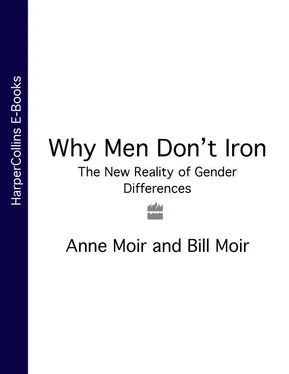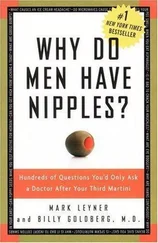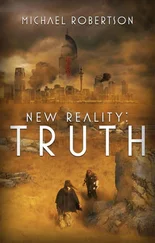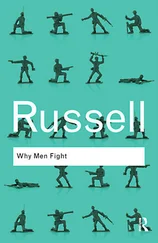Why Men Don’t Iron
The New Reality of
Gender Differences
ANNE AND BILL MOIR

William Collins
An Imprint of HarperCollins Publishers
1 London Bridge Street
London SE1 9GF
www.harpercollins.co.uk
First published in Great Britain by HarperCollins Publishers 1998
Copyright © Anne and Bill Moir
The Authors assert the moral right to be identified as the authors of this work
A catalogue record for this book is available from the British Library
>All rights reserved under International and Pan-American Copyright Conventions. By payment of the required fees, you have been granted the non-exclusive, nontransferable right to access and read the text of this e-book on-screen. No part of this text may be reproduced, transmitted, down-loaded, decompiled, reverse engineered, or stored in or introduced into any information storage and retrieval system, in any form or by any means, whether electronic or mechanical, now known or hereinafter invented, without the express written permission of HarperCollins e-books.
HarperCollinsPublishers has made every reasonable effort to ensure that any picture content and written content in this ebook has been included or removed in accordance with the contractual and technological constraints in operation at the time of publication
Source ISBN: 9780002570350
Ebook Edition © FREBRUARY 2016 ISBN: 9780007468911
Version: 2015-12-17
To Bernard Cornwell
Cover
Title Page
Copyright
Introduction
CHAPTER ONE: He’s Not Part One, Part Another
The bisexual fallacy
CHAPTER TWO: Foodsex I
Perhaps he’s a rabbit
CHAPTER THREE: Foodsex II
Where’s the beef?
CHAPTER FOUR: Brainsex I
Bottom of the class
CHAPTER FIVE: Brainsex II
The malady of boyhood
CHAPTER SIX: Brainsex III
The neurological edge
CHAPTER SEVEN: Extremes Are Not Rules
Top and tail at work
CHAPTER EIGHT: Painting Him Green
He resists her dream
CHAPTER NINE: Sex
His drive and her drive
CHAPTER TEN: The Real New Man
Home truths
References
Index
Acknowledgements
About the Publisher
This is a book about men.
About what makes them different. So inevitably it is a book about women too.
A small box sits on Anne’s desk. The top reads: ‘All that men know about women’. Open it and there is nothing inside. Funny? Sad? Humbling? An innocent admission that men have tried to follow women’s pattern of thought and failed? Or is it an insult? The box could imply that a man is incapable of understanding a woman because her complexities are beyond his simplicities. That is to define him in her terms. Or perhaps it reflects the traditional male view that she is beyond understanding because she is silly – irrational? Which is to define her in relation to himself. We tend to see in the other sex a lesser version of our own. Yet the manner in which we describe another’s mind shows the limits of our own.
‘Why keep the box?’ asks Bill.
‘To turn it over,’ says Anne. ‘To puzzle out what it means.’
‘Isn’t it insulting?’
‘Didn’t you say that we often hide behind clichés?’
‘Did I?’
‘When you gave me the box.’
It is a cliché that men cannot fathom women. But what of her image of him?
Roseanne Barr, the weighty sitcom actress, summed up her view on men in the television programme Hollywood Men: Boys Will Be Boys : ‘The real Hollywood man,’ she said, ‘is a terrified little boy and wants his mommy.’ 1Hers is the classic female caricature of the male. ‘Yes they can have control, but only in two areas,’ says Barr. ‘Starting barbecues is one; the other is walking around in packs and peeing on things.’ 2Such expertise was rewarded when Barr was appointed editorial adviser to a special issue of the New Yorker devoted to the subject of women.
Men are nothing but overgrown children, really.
They need to be told what to do.
The only difference between men and boys is the price of their toys.
Boys will be boys: they have to watch football.
Wars are little boys fighting. 3
In Alison MacLeod’s postmodern novel The Changeling , 4the big themes of boys’ history – war, political intrigue and empires – are represented as comic and trivial.
It is common for women to describe men as ‘boys’. To her way of thinking he never grows up, while she does. This attitude is as matronizing as his is patronizing. He puts her down by claiming not to understand her, that she is indeed beyond understanding, and she keeps her self-respect by claiming the opposite. Men and women are seldom more equal than in their lack of understanding of one another. Why else would women enjoin men to ‘get in touch with their feminine side’? But where does he find it? How does he look for it? Does it even exist? Perhaps, as Gertrude Stein said of Oakland, California, ‘there is no there there’. To ask men to improve themselves by relating to their feminine side is to ask them to become like women, but men are distinct: they are possessed of the differences that make for a real difference.
So why, some women ask, must his differences make him so brutally dominant? For too long, she feels, he has forced her into his social frame, into the role of the wife or the little woman , excluding her from his privileged world. As a result women feel anger and resentment, which are not unjustified. There is a need to strike a better balance between the traditional male view that he must manage her world (protect her; give her what he wants) and the hardline feminist view that she should gain power over his world (to protect both her and him from himself).
One way out of the conflict between his view of her and hers of him is to claim that there is essentially no difference between men and women. Anything he can do, she can do. Underpinning that conviction is the idea that, when we look beyond the obvious physical attributes, men’s and women’s brains are the same. But they are not. Science has upset the egalitarian applecart by conclusively showing that the sexes are distinct in how they act and think.
Some people will argue against the science, while others will accept that while there are differences between the sexes, those differences are socially engendered (they even claim that the brain differences are socially engendered) – and what society can construct, society can also destroy. In other words, by a conscious act of will, we can create the egalitarian ideal. This is the message of most university-based ‘Gender Studies’.
Gender refers to sex differences, both social and biological, but most who teach gender studies today choose to define ‘gender’ to mean only those differences that are the results of cultural pressures. ‘Gender is constructed and social,’ (neither more nor less) says a contributor to Feminist Approaches to Science . It is ‘the politics of the socialisation of sex’. 5Note the finality of the claim. Of course biological differences can be socially created; anything that socialization does to behaviour it achieves by affecting the brain. But in the usual course on gender studies, the differences between men and women are ascribed not to biology but to society, and thus an academic course on gender can exclude any reference to the hard science that demonstrates substantial biological differences between the sexes; differences that are not, and cannot be, culturally engendered. ‘Gender studies’ is too often an academic course on sex differences that excludes the real study of sex differences – which must include biology.
Читать дальше













